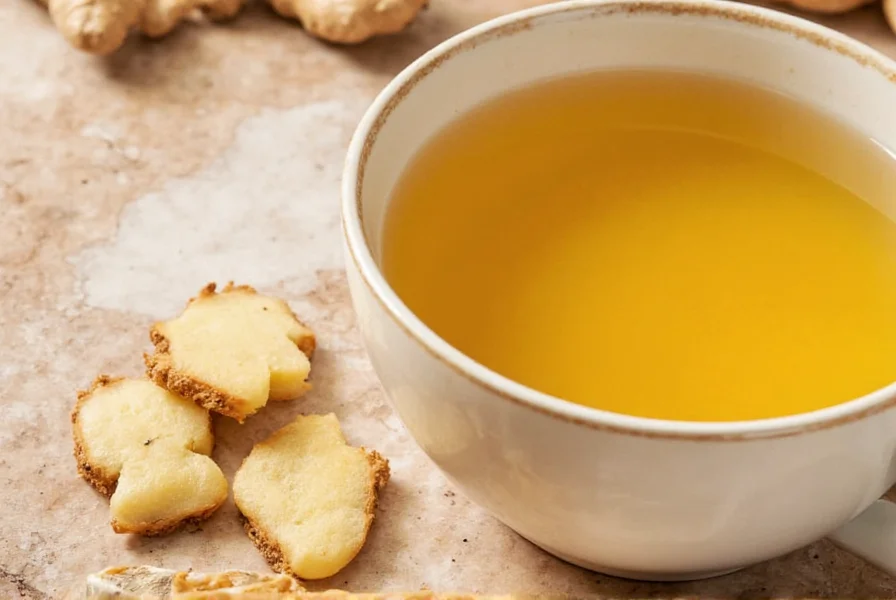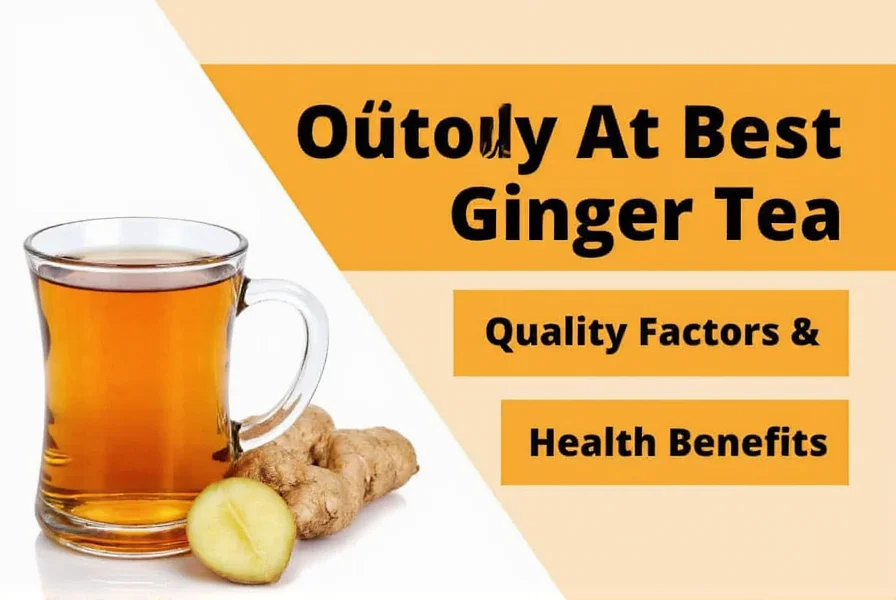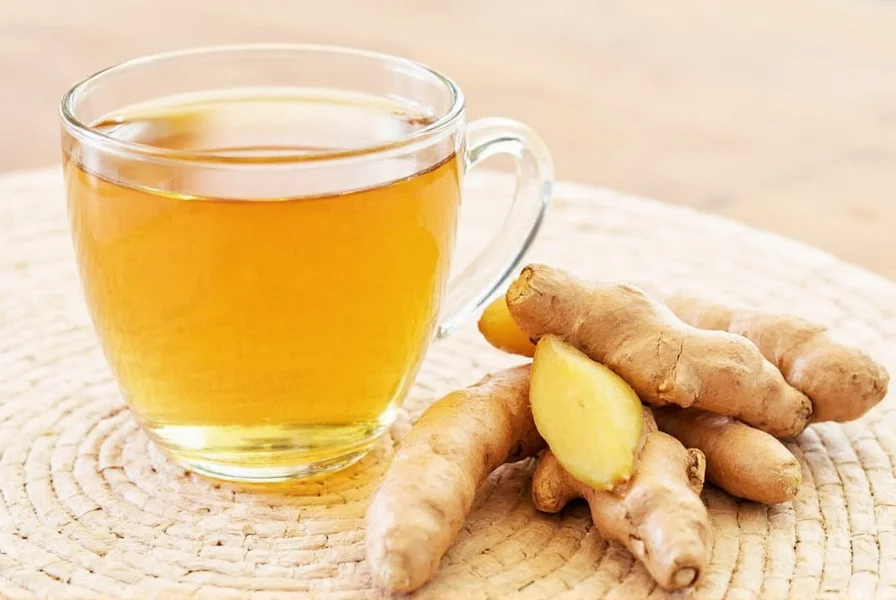When selecting ginger tea, understanding what makes certain varieties superior can transform your experience from a simple beverage to a powerful wellness tool. Ginger tea isn't just a comforting drink—it's a centuries-old remedy backed by modern research for addressing digestive issues, inflammation, and nausea. The difference between mediocre and exceptional ginger tea lies in sourcing, preparation, and understanding your specific health needs.
Understanding Ginger Tea Quality Factors
Ginger tea quality depends on multiple factors that affect both flavor profile and therapeutic benefits. The most critical element is the ginger root itself—its variety, growing conditions, harvest time, and processing method directly impact the final product's effectiveness.

Types of Ginger Tea Compared
Ginger tea comes in several forms, each with distinct advantages depending on your needs and circumstances:
| Type | Best For | Gingerol Content | Preparation Time |
|---|---|---|---|
| Fresh brewed | Maximum health benefits | 1.5-2.5% | 10-15 minutes |
| Organic tea bags | Convenience without major quality loss | 0.8-1.2% | 3-5 minutes |
| Ginger blends | Specific health goals (e.g., digestion) | 0.5-1.0% | 4-6 minutes |
| Ginger powder | Quick preparation | 0.3-0.7% | 2-3 minutes |
What Makes Ginger Tea Effective: The Science
The therapeutic power of ginger tea comes primarily from gingerols, the bioactive compounds responsible for both its distinctive flavor and health benefits. Research shows that gingerol concentration directly correlates with effectiveness for nausea relief, anti-inflammatory properties, and digestive support.
Studies published in the Journal of Medicinal Food indicate that ginger tea prepared from fresh root contains significantly higher levels of 6-gingerol (the most potent compound) compared to processed alternatives. The ideal brewing temperature ranges between 175-195°F (80-90°C)—boiling water can degrade delicate compounds while water that's too cool won't extract sufficient gingerols.
Choosing the Best Ginger Tea for Your Needs
Your specific health goals should guide your ginger tea selection. For best ginger tea for nausea, particularly morning sickness or motion sickness, fresh-brewed tea from young ginger root provides the highest concentration of active compounds. If you need the best ginger tea for digestion, consider blends that include complementary ingredients like fennel or peppermint, but ensure ginger remains the primary ingredient.
Organic certification matters significantly when selecting ginger products. Conventionally grown ginger often contains pesticide residues that concentrate in the root. The organic ginger tea benefits extend beyond personal health to environmental sustainability, as ginger farming can be particularly pesticide-intensive.

Optimal Brewing Techniques for Maximum Benefits
How you prepare your ginger tea dramatically affects its quality and effectiveness. For fresh ginger tea:
- Use 1-2 inches of fresh ginger root per 8oz water
- Slice or crush the ginger to increase surface area
- Steep in hot (not boiling) water for 10-15 minutes
- Add lemon or honey after brewing to preserve compounds
The ginger tea brewing temperature is critical—water at 185°F (85°C) extracts optimal compounds without degrading gingerols. Longer steeping times increase potency but also bitterness, so adjust based on your taste preferences and intended health benefits.
Avoiding Common Ginger Tea Selection Mistakes
Many consumers make critical errors when selecting ginger tea that diminish its effectiveness:
- Choosing overly processed products: Powdered ginger and heavily processed tea bags lose significant gingerol content
- Ignoring ingredient lists: Many "ginger" teas contain minimal actual ginger and excessive fillers
- Misunderstanding freshness: Dried ginger maintains potency for only 6-8 months when properly stored
- Using incorrect water temperature: Boiling water destroys delicate therapeutic compounds
When evaluating products, look for transparency about ginger sourcing and processing. The how to choose quality ginger tea process should include checking for organic certification, minimal ingredients, and clear information about ginger content percentage.
Research-Backed Health Benefits
The ginger tea health benefits research consistently demonstrates effectiveness for several conditions. A comprehensive review in the International Journal of Preventive Medicine confirmed ginger's efficacy for:
- Nausea relief (particularly pregnancy-related and chemotherapy-induced)
- Digestive support and reduction of bloating
- Moderate anti-inflammatory effects comparable to some pharmaceuticals
- Antioxidant properties that combat cellular damage
For those specifically seeking the best ginger tea for digestion, studies show that consuming ginger tea 20 minutes before meals significantly improves digestive enzyme production and reduces discomfort.
Creating Your Ideal Ginger Tea Experience
Whether you prefer the convenience of high-quality tea bags or the potency of fresh-brewed tea, understanding what makes ginger tea exceptional allows you to make informed choices. The pure ginger tea vs blends decision depends on your specific health goals—while pure ginger offers maximum gingerol content, certain blends can enhance specific benefits when formulated thoughtfully.
Remember that the ginger tea antioxidant content varies significantly based on preparation method and ingredient quality. Freshly brewed tea from organic ginger root consistently delivers the highest concentration of beneficial compounds, making it the superior choice for those seeking maximum health benefits.











 浙公网安备
33010002000092号
浙公网安备
33010002000092号 浙B2-20120091-4
浙B2-20120091-4